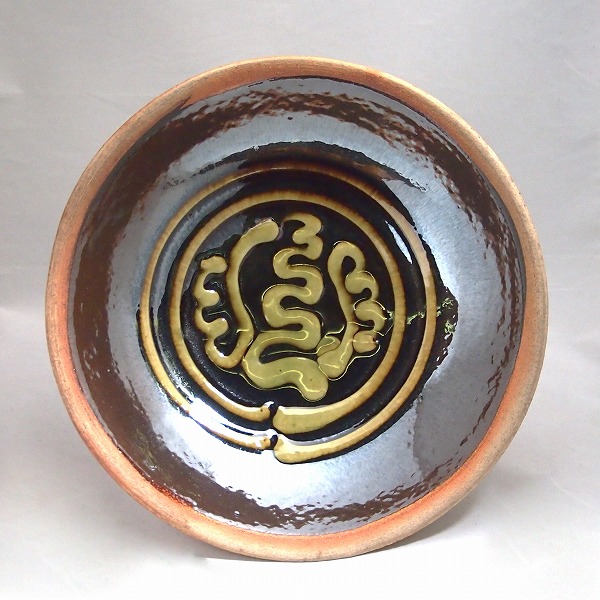
SOLD
Original Box
Showa period
D.31cm H.8cm
The pattern is boldly painted in yellow glaze on a brown glazed ground. During the Taisho period (1912-1926), Shoji Hamada returned from England and stayed at Kanjiro's home for three months. He was impressed by the English slipware that Hamada brought back with him. He then began to produce works using the slipware technique. The piece is unglazed from the rim to the reverse side and is in a hardened state. A similar piece is shown in the catalogue of "Kawai Kanjiro, Kawakatsu Collection, The Collection of The National Museum of Modern Art, Kyoto.
Kanjiro KAWAI(河井寛次郎)
1890 - 1966
Kanjirou Kawai was a Kyoto-based potter within the folk tradition of Japanese and Korean ceramics and a key figure in Mingei (Japanese folk art movement). He was a long-time friend of Shōji Hamada, Soetsu Yanagi, and Bernard Leach with whom he co-founded the Japan Folk Art Association in 1926. He refused all official honors, such as the designation of “Living National Treasures,” He often decorated his works with bold, semiabstract blossom motifs, which he painted freely in under-glaze cobalt blue, iron brown, and copper red.
Contact about the Item
